For so many brand new parents of Chinese adoptees, the time spent in China is the most anticipated and intimidating portion of the adoption process. You’re finally able to hold your child in your arms; to emotionally and legally welcome them into your family. But, well…it’s China. It’s pretty different.
As we adopted our beautiful daughters – Seren in 2014 and Hana in 2018 – we were in the unusual position of having all the excitement of being ‘there’ and none of the unsettling unfamiliarities.
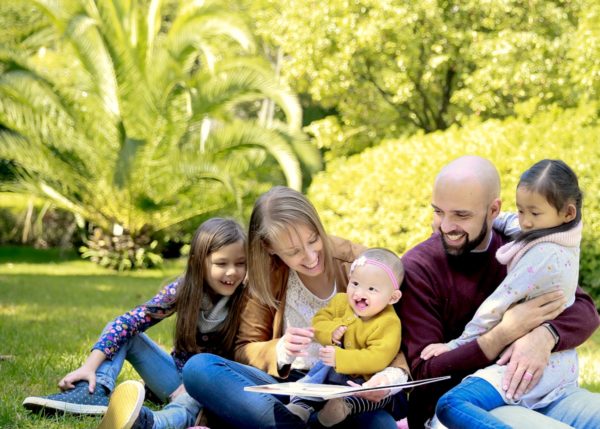
We’ve had the privilege of living and working in Yunnan, China with Sunrise Development Foundation since 2010. Not only is the culture and language familiar to us, but the culture and language of the welfare institutions is also second nature.
Sunrise’s flagship project is the Early Years Care Room of Kunming Municipal Children’s Welfare Institution – a partnership that was established in 1992, and since that time it has cared for over 2,800 infants and toddlers. Our heart is to create a family-like environment for the little ones in our care as they wait for their forever families.
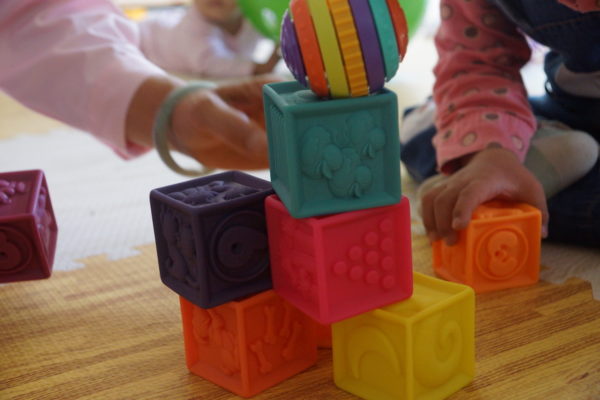
All adoption processes are beyond the scope of Sunrise’s partnership agreements yet we’ve often watched families meeting their new little ones and wished we could share some of the things we’ve learnt. So while this article is, ‘What to Expect in China,’ it could also be titled, ‘Things We Wish Adopters of Our Little Ones Knew’.
I’ve used the shorthand ‘CWI/SWI’ to refer to Children’s welfare institutions and Social welfare institutions (the same as CWIs but also cares for adults on the same site – more common outside the major cities). These are the correct terms, but if it helps you to mentally substitute the word ‘orphanage’ as you read, then that’s ok as well.
I’m also very aware that opportunity and access can differ widely from one China adoption to another, so you might not even have the chance to do some of these. That said, do try to tick off as many things as possible. Some of these things may seem insignificant now, but as the years go by, you’ll find these will have given you more context and information to share with your little one – and that is pure gold.
1. Your child’s name.
When we were expecting our first daughter, I signed up to a weekly pregnancy update email – the kind that tells you your child is now the size of a lemon, etc. I never unsubscribed, and those updates became ‘your baby this month’. I distinctly remember the email that said; ‘Your child should respond to their name’. As soon as I read it, I knew she couldn’t. Ayla had no idea she was called Ayla. She’d respond to Bear though – that counts, right?!
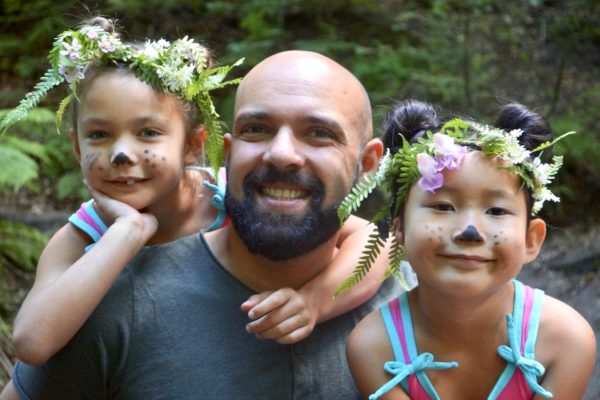
Like many parents, we had a cute nickname for her. Her full name was reserved for doctors’ appointments and when she was seriously in trouble.
The same can be true in Welfare Institutions; Miao Miao, Hua Hua, Pao Pao, Dian Dian, Le Le… Seren was never addressed by her name in the SWI, she only responded to her xiaoming [小名]. So if your child isn’t responding to their name when they meet you, don’t assume it’s your pronunciation (although it may be!) and definitely take the time to ask the primary care giver if they have a nickname. Often you’ll get the added bonus of the story behind the nickname and get another precious glimpse into your child’s personality.
2. Asking the right people the right questions.
This one can be culturally a little tricky, and I want to stress here that leaders and facilitators are trying to reassure parents that their chid has been well loved – the motivations behind this are good even if our Western selves don’t appreciate the outworking!
Here’s the scenario we’ve witnessed time and again:
Adopters = How often do they bath? The schedule says everyday, but their skin seems to be getting very dry.
Facilitator/Welfare Institution leader/manager/administrator = Everyday. You should do the same.
Actually, many CWIs bathe every 3 days, but the scenario is irrelevant. You can substitute diaper changes, personality type, physical limitations, etc., and the formula is essentially the same – the new parents earnestly ask a question, and the facilitator or mid-level staff fire back a confident, not always completely accurate, response. We personally experienced this when we asked about our daughter’s nickname – the administrator guessed – it was only when we had a meal with her carers years later that we heard a very different reason which made much more sense for our daughter!
Please remember that as well as trying to reassure you, China is a ‘face’ culture, and people with position are supposed to have the answers. Many CWI have hundreds of children in their care – they can’t know the personal details for each, so they feel obligated to give ‘best guess’ answers.
But here’s a solution: keep notes of your questions. Wait until you’re in the room where your child slept, get face to face with one of the staff in that room and ask the facilitator to translate as you’re talking directly to the carer. Make sure you are looking at the carer while talking, not the facilitator. If you’re looking at the facilitator, they’re more likely to feel they themselves need to know the answer.
3. Identifying your child’s primary care giver.
Ok, so this assumes you’re given the opportunity to visit your child’s CWI/SWI/foster home which I appreciate is not a given. But this one should be easy, right? Sorry. I’m afraid not. Remember how I said China was a ‘face’ culture? It’s also a relational culture, and one way of solidifying relationships is by ‘giving face’. This may happen in your child’s CWI/SWI, and ultimately it’s ALL to the benefit of the children, so please don’t try to rock the boat on this one.
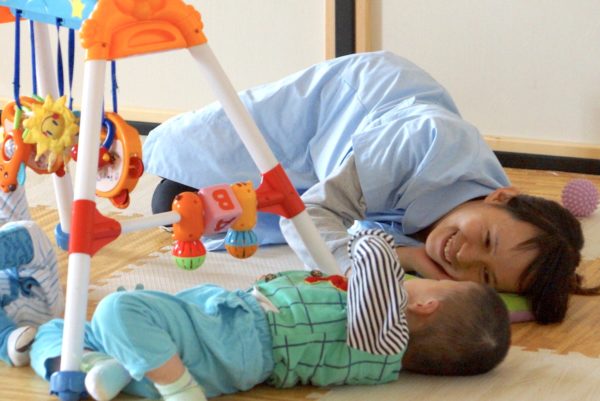
Here’s what occasionally happens. The parents lovingly prepare gifts for their child’s primary care givers. They’re taken to see a room, and the facilitator instructs them to give the gifts. This may be the room of a local or foreign non-profit contracted to provide services, such as physio or early education, in co-operation with the CWI. The CWI often wants to honor this partnership, and the parents’ gift is one way to do this. Although your child will be receiving care from these parties, it may be for 1-4 hours a day and not be the person you consider to be your child’s primary carer.
Some friends, on hearing this, have chosen to prepare additional gifts to keep back for when they’re taken to where their child sleeps. Generally, this will be where the member of staff who best knows your child is based. Personally, these are the people I’d be asking about your child’s personal information.
In Sunrise’s room, if one carer has a close relationship with the newly-adopted child, they ask to not be on shift when the visit is scheduled. This is because goodbyes are hard and can also be distressing for the child – and they probably already said a private goodbye before your child met you. But this is a great time for parents to ask carers to write a note or film a video clip of what they want your child to know as they grow up. Please remember that not all carers are literate, so videos are less problematic, and there are plenty of translation companies that can provide you with the meaning later.
You’re unlikely to ever get a similar opportunity to authentically connect with this chapter of your child’s life again. It is SO worth making the extra effort while you’re here even if you are feeling tired, distracted and overwhelmed (which are all very valid and understandable emotions!).
4. The beauty of Wechat.
By far the most popular form of social media in China is WeChat. People here use it for everything – messages from schools, posting family photos, paying bills, etc. It’s Facebook, ApplePay, iMessage and Skype all rolled into one.
We would strongly recommend downloading the app and setting up your own account before you arrive and then add everyone you come into contact with! If someone sends you a message in Chinese, you can hold your finger on it, and as well as the option to copy, etc, there’s a translation feature. If you reply in English, the recipient has the same option.
Here’s why its invaluable: photos of your child from the CWIs can be plentiful or really scarce. Carers aren’t supposed to take photos of the kids in their care. But you can almost guarantee that some of them have photos of your child when she or he was younger. Establish a line of connection with carers, express your appreciation for their role in your child’s life, gently mention how grateful you’d be for any photos/info from when your child was younger, make sure you don’t disclose to facilitator or other people that they’ve chosen to share info/photos with you – you don’t want to ruin things for future parents. I refuse to confirm or deny that this is how we got oh-so-adorable, worth-more-than-gold pictures of our little ones as newborns 😉
This is also a great tool to send back your family photos around Chinese New Year or your child’s birthday. Our staff are so encouraged to see how the kids are growing and thriving!
5. Visiting the finding spot.
So you’re jet-lagged, you’ve been handed a print out of a schedule that looks pretty full, you’re mostly being swept along, the food is unfamiliar, your child is silent/not eating/constipated. It’s a lot. And I’m about to add to it.
Please, please, please try to do everything you can to visit your child’s finding spot. We have met so many families who intend to come back in 2-5 years to do the things they didn’t do while adopting, but the cost, distance and reality of family life push those plans back by years and years.
And things change here quickly. Not least the physical layout of places. There’s a common joke that foreigners call China by that name, as they’re always ‘chai’ ‘na’ [拆那 – knock down there] to ‘jian’ ‘na’ [建那 construct there]. Add the rapid physical development, the cost and distance and China’s often-changing permission for foreign access, and there’s the chance this may be the only time you’ll have the opportunity to see the finding spot.
The finding spot is part of your child’s story. A difficult one to process emotionally for sure. But it adds detail to the narrative.
Even if it means paying extra money, finding a non-agency related translator and hiring a private minibus, it is so worth the effort to visit, get photos and store those pieces of the puzzle away for later years. Trust me on this one. And you’re welcome.
6. Don’t expect your child to speak or understand Mandarin Chinese.
We are deeply impressed when adopters exhibit a strong commitment to honouring their child’s birth culture and have seen parents bring Mandarin based toys and books, have had lessons in Mandarin or even bring a Mandarin speaking friend to accompany them.
But the primary care givers may not be Mandarin speakers, and that can mean that your child has only ever been around dialect – some of which differ dramatically from standard Mandarin. This is particularly likely to be true outside of Beijing. The wonderful ladies who care for the children in the Sunrise Room smilingly tell that they only learnt Mandarin so they could communicate with the Sunrise foreigners!
The reality is that, in most countries, care work is often under-appreciated with low pay. This is equally true of China. Many carers – not managers or leaders – will be ladies with basic educational backgrounds and often from rural areas. Mandarin often isn’t their mother-tongue. All that to say, don’t expect your child to understand when you or other Chinese people around you (in-country and back home) give directions and instructions in Mandarin. They may have had almost no exposure to the language*.
7. Go photo crazy.
Many, many years ago I was roped into teaching a basic photography course for young people. The curriculum said something that’s stuck with me; take photos for context; the micro and macro, without these the family/portrait photos have less meaning.
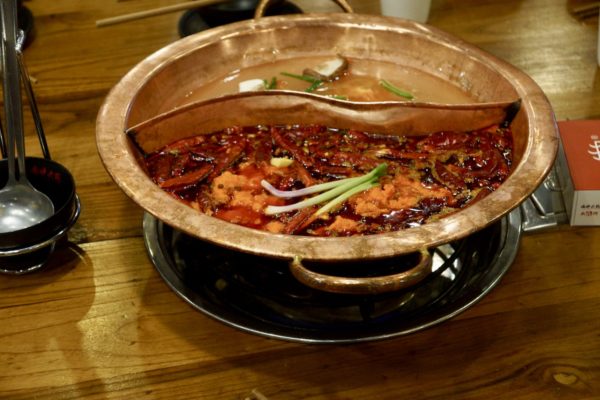
Take photos of street signs and the entire street view. The bowl of noodles and the large mall the noodle shop is in. Your boarding pass. The landscape of the CWI and the name on the crib. Your child’s roommates – if you’re given permission, of course. These are details we all forget and/or can’t take in at that moment. But at that moment you’ll have physical access to that chapter in your child’s life that you may never have access to again. It’s a rare moment where your child’s past and future overlaps, and you want to document as much as you can while you can.
8. Regaining of personhood.
This one is a little abstract, but I think it’s worth a mention. It’s a notion that I came across when writing my dissertation and fits SO well with our personal experiences and yet is not something I’ve ever heard in China adoption circles. And I don’t think it hurts adoptive parents to have this knowledge.
Family and blood ties is so important in Chinese culture. Your surname, your family group, who you belong to – it gives you your identity; your personhood. When children are relinquished, they essentially lose that. The loss of family and therefore identity means many of our local friends don’t know how to talk about Sunrise’s work, don’t know how to engage with children outside of families.
It’s the same feeling of discomfort I distinctly remember feeling as an 8 year old in an elderly care facility in a room of people affected by Alzheimers. I didn’t understand it, didn’t know how to connect with people who had Alzheimers and that left me scared and uncomfortable. In a sense, relinquished children – because they lose their biological family – are also losing their ‘personhood’.
Fast forward a little. We now have our little Chinese adoptees walking around in China with their foreign parents, and the conversation I can guarantee we have at least once a day is this: ‘她们不像你。她们是我们中国的。’ “They don’t look like you. They’re [our, belonging to, part of] China [are Chinese].” What we have always found fascinating is that we’ve never heard the phrase ‘[our, belonging to, part of] China [are Chinese]’ in relation to the young ones in Sunrise’s care or the unadopted care leavers we also work with.
We’ve spoken to our local friends at length about this, and so far they’ve all emphatically agreed – and are mostly fascinated by the fact they find it to be true but can’t rationally explain why; there is something about the process of adoption [domestic or foreign] that not only gives a child a family but also restores their personhood. The great irony of inter-country adoption for Chinese adoptees is that in the process of becoming a foreigner, they’re also simultaneously regaining their ‘Chinese-ness’.
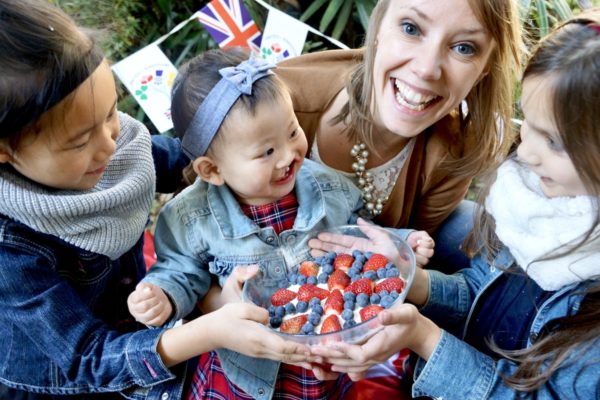
So as you’re walking your brand new child around the streets of China and getting lots of attention from locals – take a moment to allow the significance to sink in. Your child’s new status has just given him/her access to two priceless worlds; family and ‘[our, belonging to, part of] China’. And that’s pretty amazing.
Lastly we want to say congratulations on growing your family! We really hope that some/all of these 8 thoughts are helpful when you’re in China and that none of these feel like chores but rather gifts. Because, when we step back and remember that we’re merely guests in this gracious host country, we realize that is truly what they are.
*According to Chinese law, children should be in full time education by their 7th birthday and all curriculum should be taught in Mandarin. That said, the actual experience of children with special needs in State care can differ from this.
For more information on the work of Sunrise, feel free us on Facebook or email us.
Sarah, her husband Nic and three daughters (Ayla, 7; Seren, 6; Hana, 1) have lived and worked in Kunming, Yunnan province for almost 10 years. Sarah holds an MA in Social Welfare Policy and Practice and her work on Intercountry Adoption was recently published in the International Journal of Sociology and Social Policy. Nic is employed by Sunrise, a registered NGO whose projects partner with government institutions to care for children and the disabled in Yunnan. Sarah adores her family, is a master plate spinner [metaphorically] and is a huge fan of coffee [not metaphorically].

























What a great and insightful post! Thanks for sharing your wisdom. Your family is beautiful!
Thanks for your kind words, Julie!
This post was such a blessing to me today, especially the last point about our children regaining an identity. Made me tear up. Much of this I related to so much because we just returned from our second adoption trip two weeks ago. And I wish I had read it before we went! There was much about our orphanage visit that was disappointing, the greatest of which was not meeting our child’s main caregiver. The ladies who brought her to us would not allow a photo because they didn’t know her well, but we were taking video…so we can clip so photos from that. Even so, there wasn’t much in the form of a goodbye for her, and that was hard on us. It also made it hard to ask anyone questions. Anyway, thank you for this post. It is so insightful!
Love this! Our daughter is from Qujing Yunnan. Thanks for your insight.
No way! My youngest is as well – we have spent A LOT of time there over the last 12 months and some of our rural projects are based there. Small [China adoption] world!
Loved the “personhood” point. Thanks for that. We travel in June.
great article, and some great tips but I wish more families were real about their experience in China. My daughter who was 6 at the time, was shown the album we sent months earlier in the car on the way to meet us. She was explained about were she was going , in the car. Even though we hear stories about kids seeing other kids leave and “they are sad its not their turn” well my dd didn’t even know what adoption was. She happily came to us and was great for 24 hours, she raged for days afterwards. She trashed the hotel room, kicked screamed etc. we were given little info about her medical concerns from the staff, as no one really knew anything (and she has complex medical and her file was completely wrong). No one told us “how to deal with the stares” or “how to deal with a screaming child who was swearing at us in Chinese the whole time”. We need to talk more about those experiences, and prepare people for incorrect files, and I think we’d have less “second chance adoption”
We welcome you to share your adoption story and “what to expect”, Kim! Under “About” in our nav bar just click on Share Your Family Story and fill out a short form – and we’ll be in touch with details on how to submit your family story to help inform and prepare traveling families!
I love this so much, especially the last point. I wanted to add that if an adoptive parent doesn’t make it to the finding spot (we had too much unexpected snow and they nixed the idea), he or she can hire a finding person to ask around, hang posters and take pictures of the finding area while searching for any bio parents. We now have many pics of the area with out snow, pictures of the policeman who wrote the report and even a rock from the area. It is invaluable to me and I think it adds to my daughter’s narrative. On the other hand, my husband thinks we overpaid for “just a rock.” haha
I showed my daughter, now age 17, her finding spot pictures last year and all she could comment was” look at all the traffic, I could have been run over”
The last point was really interesting! I struggled in China with all the fawning over my kids, I felt like saying “why do you like them so much now? you would never adopt them yourself!” and now that makes perfect sense.
I respectfully disagree with the last point of the article. That point makes Chinese people in general look uncaring, compassionless, and lacking empathy towards those who are less fortunate than they are, which is not the case at all. Children who are orphans did not lose their personhood or their Chinese-ness just because they became an orphan. The children in orphanages have enough hurdles to overcome. Let’s not do them the great disservice of assuming they are void of their personhood and their Chinese-ness until they are adopted by a foreigner. In the orphanage I work in, we have plenty of young adults who have aged-out and are doing well for themselves in college, in business, and in their married lives. They survived public school as being “real” Chinese people. They didn’t need to be adopted into a foreign family in order to be validated and have their personhood and “Chinese-ness” restored. (I’ve worked in the same government-run orphanage for 14 years, and have also volunteered in two other orphanages, so I understand the culture, the people, and the importance of family.)
Tammy, thanks so much for taking the time to add this feedback! Perhaps my limited writing skills are to blame as the notion that this article makes Chinese people seem ‘uncaring’ or ‘compassionless’ certainly isn’t my belief or intention. We also work with these kids as care leavers and have had the deep joy of seeing some of them succeed in jobs and of being part of one of their weddings last year [incidentally, another type of family formation]. But we have also seen the social stigma (particularly those with disabilities) can face on a daily basis – I truly believe they’re thriving in spite of some of the challenges they face, not in the absence of it. Does the point suggest locals ‘lack empathy’ towards those other than them? Perhaps. But can you name a nation that doesn’t experience this? I grew up with a disability [OI] and my husband and younger brothers are adoptees. I can say first-hand that us Westerners aren’t as ‘evolved’ as we often like to believe we are, although perhaps the otherness we experience is rooted in different cultural norms. Incidentally, I strongly disagree that this point is suggesting the need to be adopted by a foreigner. Rather that joining a family changes these childrens’ status legally and otherwise; we strongly believe in domestic adoption and have seen a dramatic increase in recent years which we’re thrilled about. As the point notes, this isn’t an concept original; its discussed in publications by Sara Dorow and Leslie Wang and is one that deeply resonates with our experiences. That said, China is large, populous and enormously varied. That you experience and perceive something different is unsurprising and if the experiences of kids elsewhere are so different then your voice is an important one in the discussion. I love your heart that advocates for these kids who as you say, have enough hurdles to overcome and goodness knows they often need advocates. But in our context and experience the point of personhood rings very true and if it helps Western families better understand China and the importance of their new child’s ‘Chinese-ness’, then this knowledge is a good thing.
Thank you so much for this information. It leaves me a bit saddened as we adopted our daughter from Huanggang City SWI in 1998 and Fuling SWI In 2003 and didn’t do some of these things. I still hold on to the photos and memories we did get.
I do have a question. Both of our daughters were said to have been left at the police station, as their finding spot. Is this usually true or just convenient to mark their history as such?
Janet, I think there’s always unknowns in intercountry adoptions and there have been instances of mis-reporting for sure. But for the most part I think its ok to believe the info unless there’s something contradictory that leads you to question it. It is very common for children to be left at police stations – the literal translation of 公安 [police] is Public Peace, so its seen as a safe place – in the same way (if popular culture is to be believed!) a fire station or hospital may be a place people in the US often leave children. That said, it might not be the child’s birth relatives that took them there, it could be a person who initially found them who wanted to stay anonymous. Hope that helps!
Hello Sarah,
I would love to know more about adopting from China as an expat. My husband and I are moving to China in August and want to adopt while we are living there. I have contacted a few agencies, but haven’t heard back from any of them.
Happy to help if I can! Feel free to drop me an email; sarah@homelandties.com
This is such valuable information to have for us as we plan to go to China soon to pick up our little one. Definitely going to try to go to his finding spot.